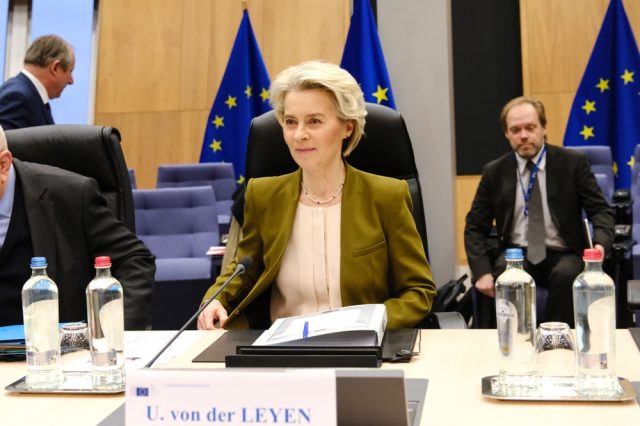
A narrow majority, but the centre holds firm
With 370 votes in favour, 282 against and 36 abstentions, the European Parliament has given the green light to the second Commission chaired by Ursula von der Leyen. This is a historic result, but not for the most encouraging reasons: with only ten votes over the required absolute majority, it is the worst result ever for a European Commission. This reflects the growing divisions within the Parliament and the challenge of maintaining a political balance in a European Union facing increasing geopolitical and internal turbulence.
Last July, Ursula von der Leyen had been given the mandate to form her second Commission with 401 votes in favour in a secret ballot. This time, the drop to 370 votes, equal to 51.39% of those entitled to vote, is a sign of growing fragmentation and difficulty in gathering broad parliamentary support. The vote reflects the division within the European Parliament. Among those against, the independents of the PD list, Cecilia Strada and Marco Tarquinio, stand out, together with the Italian representatives of the Left group (Italian Left and M5S) and the Greens, whose group was united in opposition. The League also confirmed its opposition line, with all eight MEPs lined up against. Overall, the Italian contribution to the vote was 52 in favour and 23 against, confirming the internal political polarization of the country.
Despite the narrow margin, Ursula von der Leyen underlined the stability of the political centre, defining the result as a vote for stability and responsibility in a complex geopolitical context. The president declared that her team would start working immediately to address Europe’s crucial challenges, including security, economic prosperity and internal unity. Roberta Metsola, president of the European Parliament, reiterated the symbolic meaning of the vote, defining it as a sign of cohesion and commitment to addressing the Union’s problems together.
In her speech before the vote, von der Leyen outlined the priorities of the new Commission, presenting an ambitious plan based on three main pillars: Innovation and competitiveness: The President highlighted the gap between Europe and its main competitors, the United States and China, in the field of innovation. Although Europe is a leader in patent applications, only a third of these are commercially exploited. In addition, European startups face significant obstacles to growth due to national barriers, an issue that the Commission is committed to solving.
Decarbonisation: Von der Leyen reiterated the importance of a common plan for decarbonisation that combines environmental sustainability and economic growth, indicating that the ecological transition will be central to strengthening the Union’s competitiveness. Energy security and independence: The President stressed the need to reduce energy dependencies, in particular those related to Russian liquefied natural gas, and to invest in security. A key element will be the Competitiveness Compass, which will guide the Commission’s policies for the coming years. This instrument is inspired by the Draghi report, aiming to bridge economic and technological gaps and promote a stronger and more independent Europe.
Von der Leyen reiterated her commitment to working with all pro-European democratic forces, seeking to build bridges between the different souls of the Parliament. “Overcoming divisions and forging compromises is the hallmark of any living democracy”, she stressed, indicating that cohesion will be the central theme of her second term. The President also entrusted Executive Vice-President Raffaele Fitto with the task of promoting cohesion policies, giving greater prominence to regions and local communities. This approach aims to ensure that all areas of the Union actively participate in the definition of European policies, strengthening legitimacy and support for the EU.
The result of the vote highlights a European Union in search of stability and leadership capable of facing the challenges of the future. With a divided Parliament and the need to manage geopolitical, economic and energy crises, the new Commission will be called upon to demonstrate that compromise and cooperation can still drive the European project. While the narrow vote is a warning, it also reflects the resilience of the European institutions. Von der Leyen’s challenge will be to transform this fragility into an opportunity to strengthen the unity and credibility of the Union. Europe, as the President stressed, must remain united to face global risks and build a future of freedom and prosperity for its citizens.



 Subscribe
Subscribe